Top 10 Essential Tips For New Vanlifers
Living in a van comes with so many questions and ‘what ifs’, which is why I’ve compiled a list of topics and tips for new vanlifers to help provide some answers.
I’ve been living the van life for almost three years now. I have broken down, I have had my camper towed out of fields, and I have experienced a ‘toilet overflow disaster’ on three occasions.
I’ve travelled over two continents, learning how to do things the right way but usually in a long winded manner. I love this lifestyle, but that doesn’t mean that its easy.
It’s certainly not all ‘busty babes and muscly dudes’ hanging around on beaches like you see on Instagram. It can be tough, but it’s also a rewarding, self-sustainable way of life.
I’ve kicked my brain into gear and come up with the top questions that I wanted answering when I was searching for tips for new vanlifers, as well as answering the questions that people ask me on a regular basis.
N.B – Some of the answers that follow might not be want you want to hear. They are, however, the truth.
1. Get Used To Living In Your Van Before Heading Out On A Long Adventure.
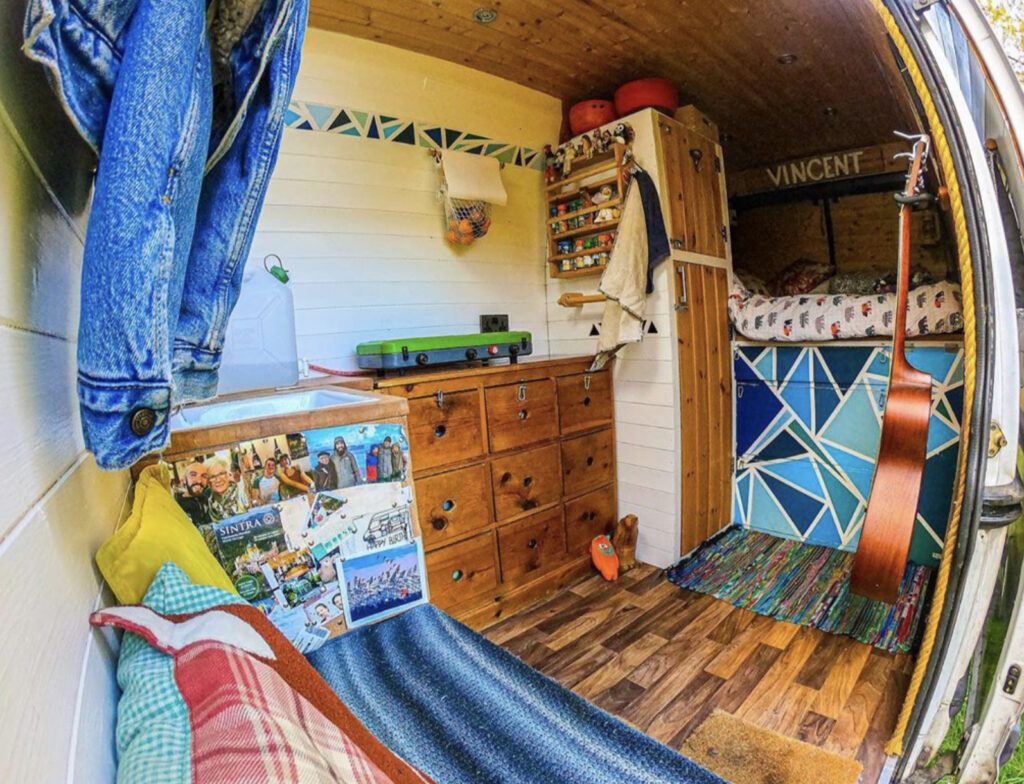
If there’s only one piece of advice that you take from this list of tips for new vanlifers, then make sure it’s this one.
Too many people take the plunge from living in a house to living in a van without actually living in their tiny space for a little bit beforehand. Many people add extra stress to this by going on a major trip straight away.
Living in a tiny space is great, but it’s completely different to everything you’ve known before. There certainly is a bit of an adjustment period where you get used to small living and your new surroundings, and chances are you’re going to think of lots of things that you ‘could have done’ to make your space even better.
Rose and I made sure that we lived in our van for two weeks while outside of our rental property before we gave the keys back to the landlords. We lived, slept, and cooked inside our tiny home, knowing that if something went wrong or broke, we could go in and sleep on the carpet of our empty house in a sleeping bag.
In this short time period, we realised that a few things needed moving around. We also determined that we didn’t need many of the things that we had packed (I’m coming onto that in a minute), and we developed a rhythm for this way of life.
2. Have A Pot Of Cash Behind You For Emergencies
After our initial two week period of living in a van outside our rented home, we handed back the keys and parked beside a nice stretch of land just around the corner. Don’t judge us; it was a nice area!
We lived and worked in our van for a full 13-months, saving up a pot of money that we could tap into if we broke down (which we did) or if we got into an accident (which luckily we didn’t).
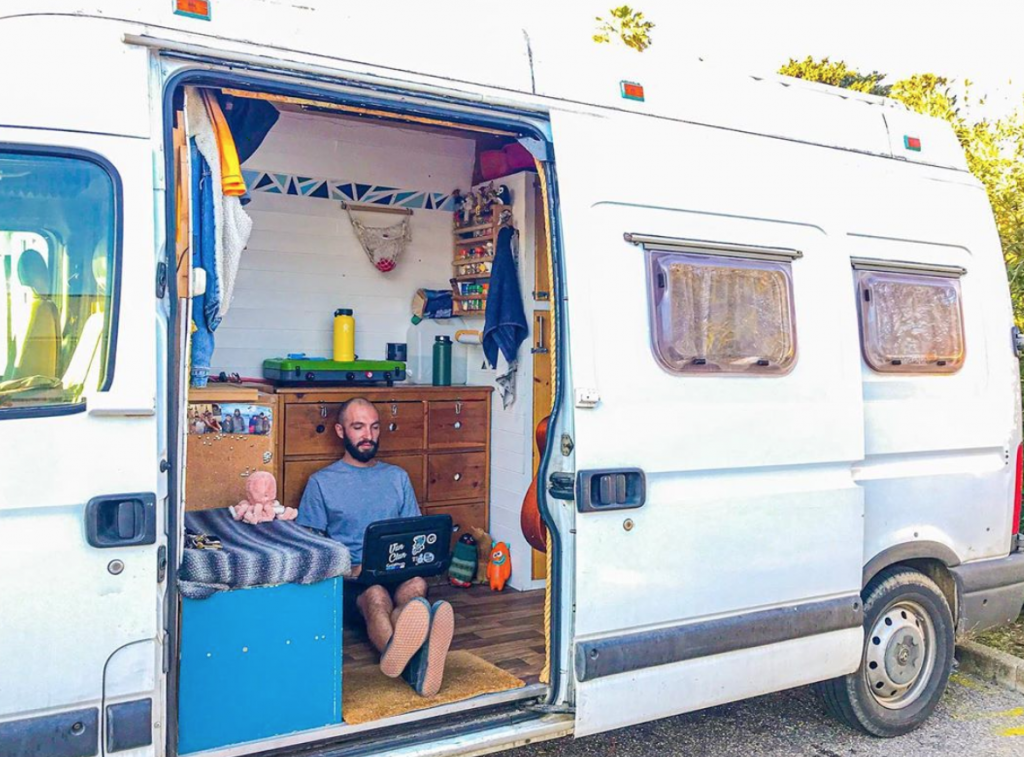
We are lucky that we can work remotely and keep earning on the go. But when you get slapped with a €900 repair bill in the middle of Italy, it’s nice to know that you’ve got a nice sum stored away just for those kind of emergencies.
Too often we hear about people who have headed out into the world on their adventures and have had to come home when they’ve broken down. Don’t make the same mistake! Don’t jump the gun; save up some money, and travel when you’ve got some capital behind you.
Check out our digital nomad article, packed full of tips for new vanlifers that want to work remotely.
3. Cut Your Belongings Down – You Won’t Need All Of Them
We gave away around 80% of our belongings when we moved into our van. The majority of that; clothes, furniture, games etc, went to local charity shops, and other items went to family and friends.
Only when you have to think about downsizing from a normal house to a van do you realise how little you actually need. Instead of owning ten bowls, we now have two. Ok, so I have five different hats on a hook that I’m looking at right now. I’m bald, so cut me some slack!
Rose and I have one of everything, with the exception being clothes. Even then, we have a couple of pairs of jeans and shorts a piece. We’ve got lots of underwear and tshirts, but I reckon we could whittle them down and free up some space.
A tidy house equals a tidy mind, and small spaces can get messy real quickly. If you didn’t use it while you were in your house, then you’re not going to use it in your van. Chuck it on eBay or give it away.
4. You Don’t Need To Shower Or Wash Your Clothes Every Day
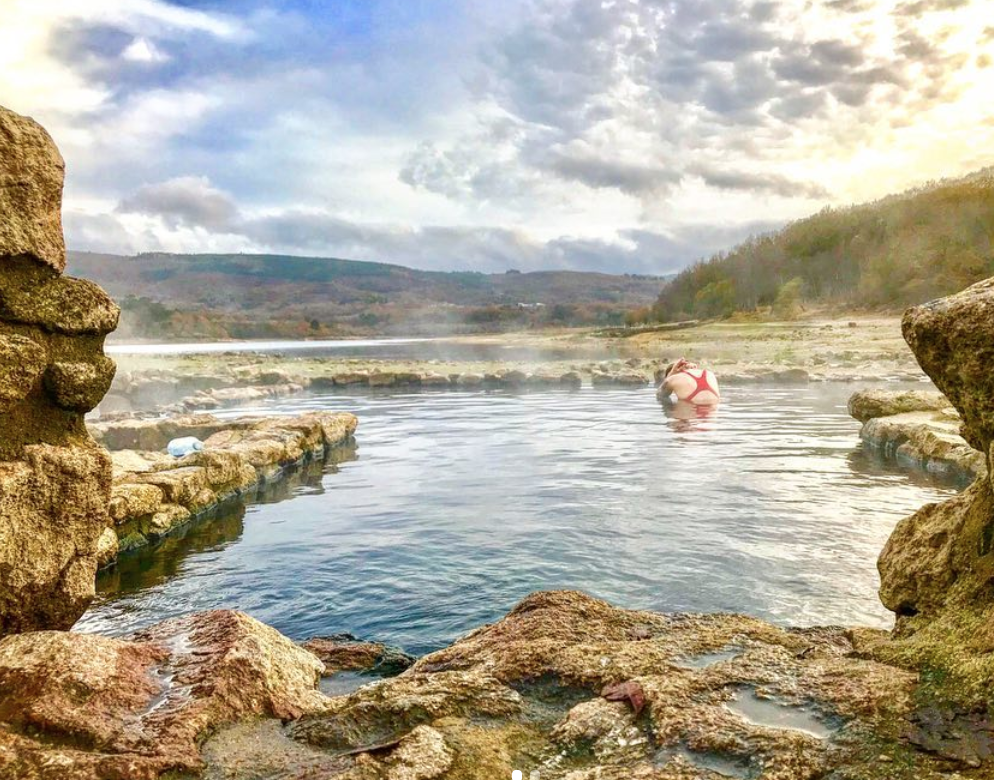
For some reason we’ve all got it into our heads that we have to shower twice a day and wash our clothes after wearing them once. This is insane, and it wastes a lot of water.
We shower probably every four to six days. We might have a wash down with a bowl in our sink if it gets hot, but most of the time we keep clean by jumping in and out of refreshing lakes.
Try it – you’ll realise that you don’t get as sweaty as you thought. The same goes for washing clothes. Instead of washing something because you think it’s dirty, use your nose and go for the smell test.
The nose never lies.
Launderettes can be expensive. We use our Scrubba Wash Bag to wash smaller items and visit a launderette once a month with bedding, jeans, and other bulkier garments. Flip your duvet over to get another stint out of it before you wash it, and pack some spare sheets.
5. Getting Sick Is Inevitable – Be Prepared
I should probably say at this point that not all of these tips for new vanlifers are ‘happy go lucky’ pieces of advice. The world doesn’t work like that, even if social media says it does.
Doctors and pharmacies are easy to find in most countries, and most of them will speak a little English is you aren’t confident with the language. Of course, if you’re reading this from the UK or America and are planning on a staycation, then it won’t be a problem.
There might be a problem, however, if you’re somewhere remote and don’t have any painkillers or medication. Being sick is never fun, but the best part is that you already have your home with you wherever you go. At least it won’t be hard to get immediate bed rest.
Stocking up on Aspirin and Ibuprofen is a great idea. They can’t cure everything, but they are good in most situations. If you suffer from IBS or have any deficiencies of any kind, then make sure you’re stocked up on tablets before you head out into the wild.
6. Plan Your First Park Up And Get There Early
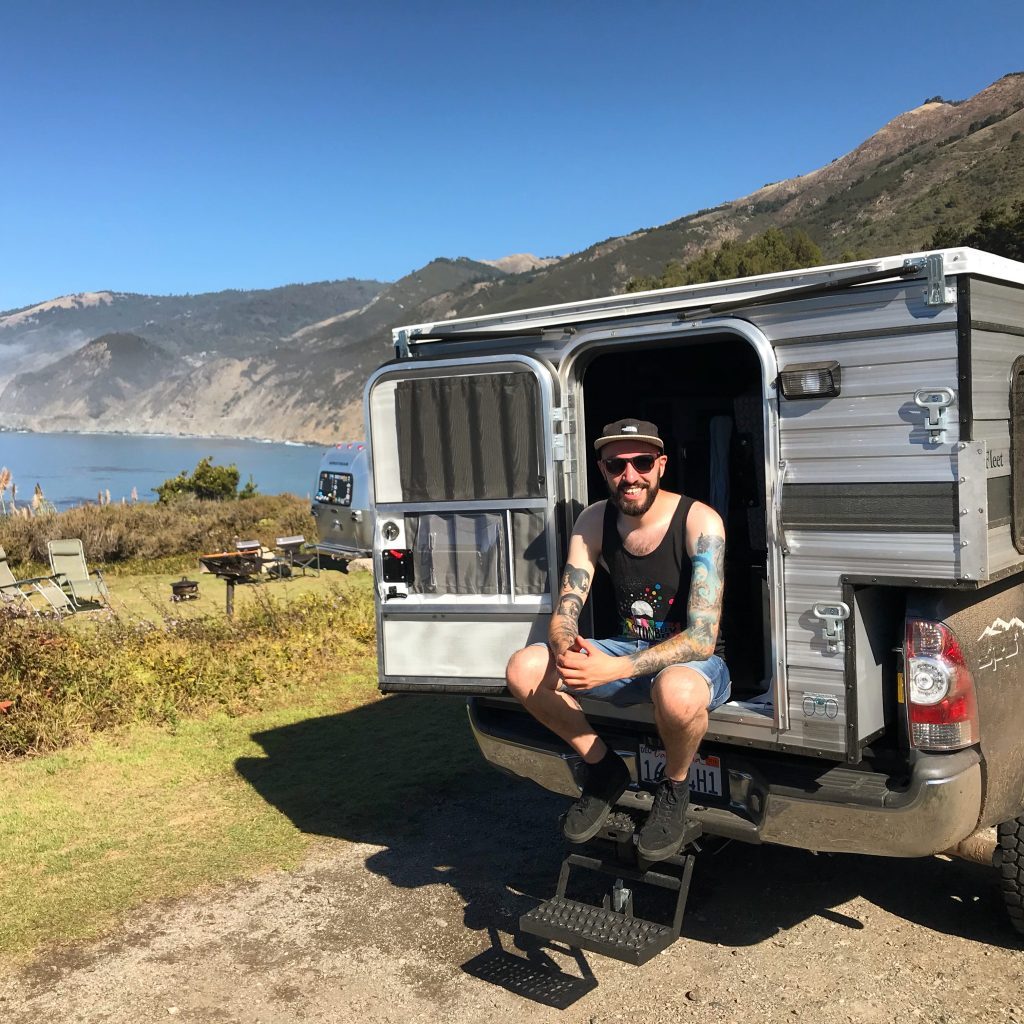
You’ve just decided to head out somewhere new, and you have no idea what to expect. If this is you, then I understand your trepidation. This was me when I got off the ferry in Spain, trying to battle the Sat Nav when it told me to go down a near-vertical grass verge.
Not knowing where you are can be stressful at the best of times, and it’s always a good idea to get to a camping spot in the daylight. This way, you won’t have the added difficulty of navigating your way in the dark, and you can make a quick decision as to whether it looks safe or not.
Boondocking and stealth camping can be a little nerve-wracking the first time you park up in the wild. But once you’ve had your first experience, you’ll feel right at home in this lifestyle. It’s definitely easier if you’ve had plenty of time to get used to living small too.
7. Practice Driving Your Camper And Get To Know What’s Under The Hood
The van that I live in was the first car that I ever bought.
Seriously, that’s no lie!
I passed my test at 27 and bought my Vauxhall Movano four days later. I could have done with an article that gave tips for new vanlifers back then, so hopefully, you can get prepared by using my hindsight.
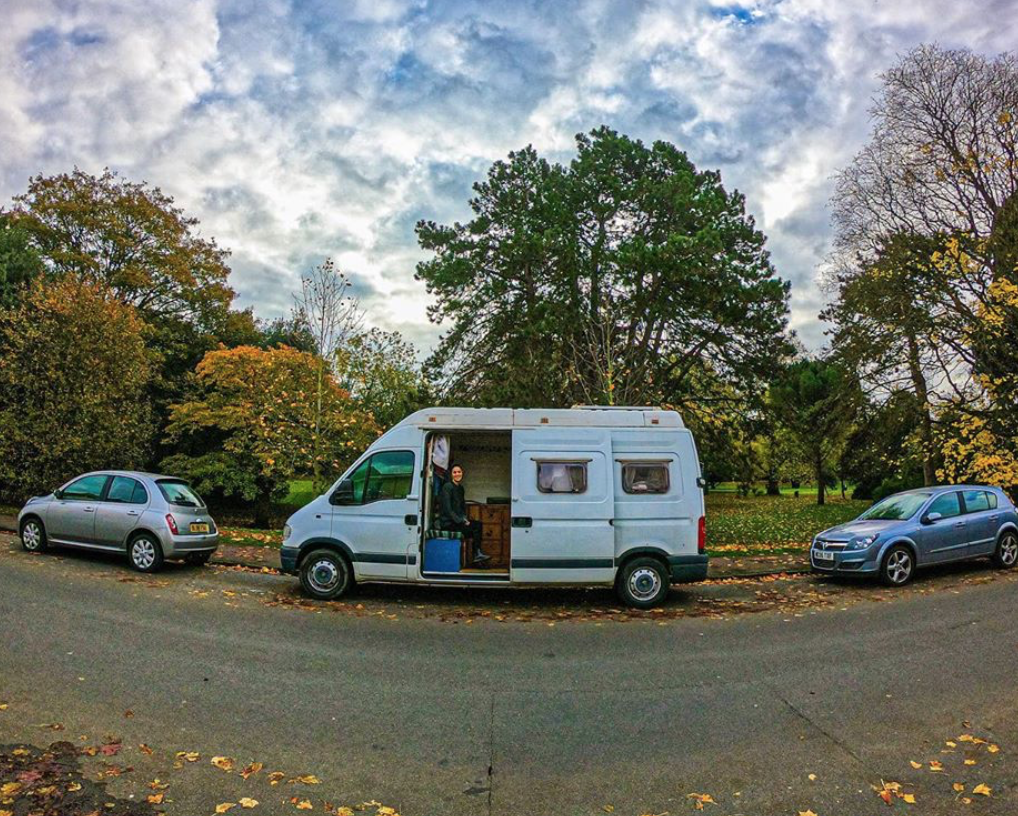
Driving a van is a lot different from driving a car because it’s so much bigger. Three-point turns become ten-point turns, reversing is trickier, and there’s less room for error when you’re parking in tight spots.
Before you start a road trip across states or decide to go to a country where they drive on the ‘wrong’ side of the road, you should get used to the little things, like getting to know how your vehicle feels and works.
Drive your van down country lanes, take it on the motorway, practice reversing round a corner. Learn how it feels in as many scenarios as you can, that way you can get a feel for how it drives and you’ll get to know the vehicle like the back of your hand.
Pay attention to what’s underneath the hood/bonnet too. Learn where the dipstick is, take a look at water levels, and get to grips with where your starter motor is etc. It’ll all help in a breakdown situation, and it’s also a good idea to have some kind of knowledge of your van’s inner workings in case you can fix a problem yourself.
Long story short; get to know your vehicle and feel confident driving it. That way, when you’re reversing away from something and a crowd of people is watching you, you won’t panic and feel like an actual dipstick.
8. Pay Attention To The Travel Rules & Regs Of Each Country
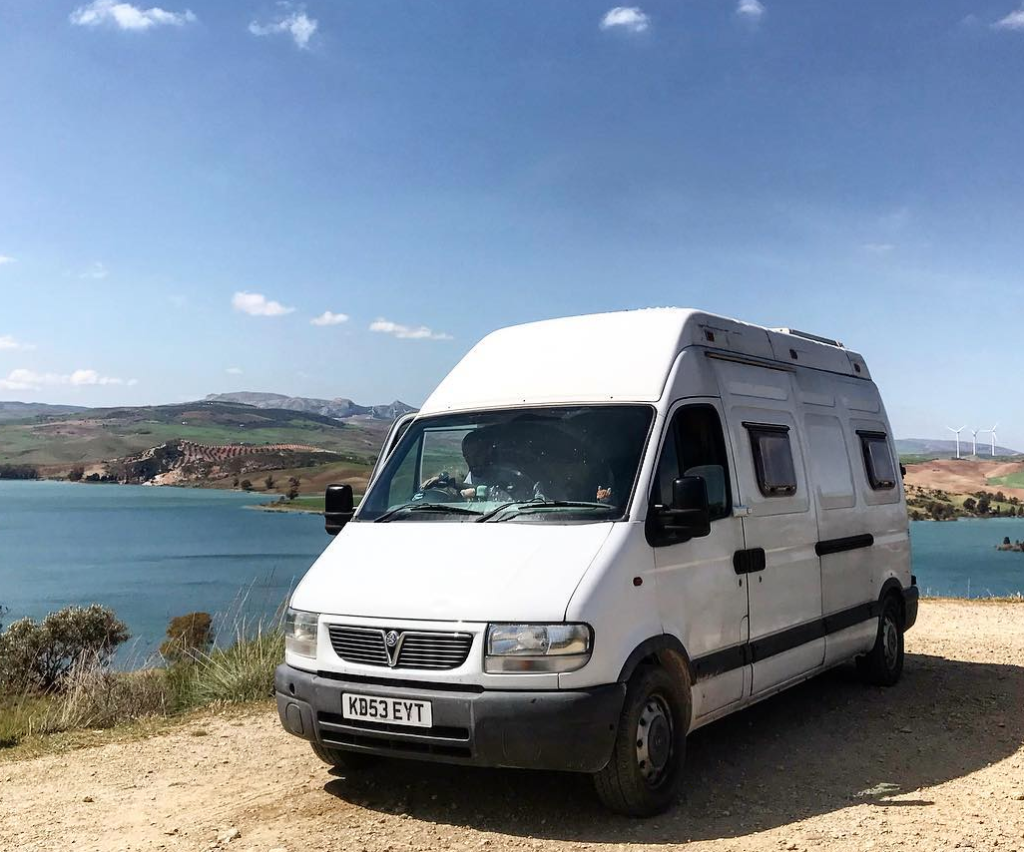
For the purpose of this section on our new tips for vanlifers list, I’m going to talk about my experiences travelling through European countries. Different countries have rules and regs about tolls, speed, and what you need in your camper to be ‘road safe’.
Switzerland requires that you buy a vignette if you want to travel along its motorways. This costs 40 Swiss Francs and is available before you get to the border. The same goes for other countries such as Slovenia. Slovenia doesn’t like wild camping either, and the police can fine you if you’re not in a designated free camping spot (of which there aren’t that many).
Germany has its famous Autobahn with speeds of up to 130km/h, though many other motorways in Europe stick to 110 or 120km/h.
France requires you to have hi-vis jackets in your vehicle at all times, as well as a breakdown triangle and other equipment. You can buy packs online with all of the necessary items in for around £30.
Some parts of Italy require you to have snow chains in the winter, and many countries have zones that you can’t take high-emission cars into.
What I’m basically saying is that it’s not as simple as just rocking up to a place and thinking all will be well. Do your research before you hit a new country, be respectful, and plan ahead.
9. You Can’t Afford To Be Angry In A Small Space
They say that holidaying and moving house with a partner can prove whether you’re meant to be together. Living in a tiny house is the ultimate test, and if cracks were starting to show before, then they’re not going to get any better.
Sorry to bring the article down a bit, but it’s the truth.
I know that anger is a misplaced emotion, but we’re human, and sometimes we can’t help but feel a little annoyed. There’s nowhere to run and hide in a small space, so you have to make your feelings known and be comfortable enough with your partner to resolve any issues quickly and effectively. Failing to do so can leave both parties feeling trapped and miserable.
I would be lying if I said that Rose and I hadn’t got annoyed with each other, but we know how to work through disagreements and quickly put things behind us. There’s no point dwelling on the past, it’ll only spoil the future.
Of course, if you’re travelling by yourself, then the only person you need to worry about is you. It’s pretty easy not to get mad at yourself…most of the time.
10. Be Prepared To Smell Some Funky Stuff
**Make sure you’re not eating your dinner when you read this next section!**
You wanted real tips for new vanlifers, and this one is about as real as you can possibly get.
Some couples are a little embarrassed about going to the toilet in front of each other or squeamish when it comes to poop. You’re going to have to get past this very quickly if you’re going to make living in a van work.
We have a toilet in our van as we didn’t fancy going outside to do our business in the rain or at night. Yes, we use our toilet for Number 2’s, and yes, sometimes hearing and smelling what the other person is up to can’t be avoided.
It’s just another part of living in a van that you have to get used to, as is emptying your toilet in a designated waste disposal site. It doesn’t smell pretty, but it becomes the new normal after a while.
The New Normal
To summarise all of the tips for new vanlifers above, it’s all about finding the new normal. Yes, there will be a period where you have to adjust to a new way of living. But after a while, fetching water in bottles, bathing in hot springs, and drying your underwear in the front cab on sunny days won’t feel like a chore or out of the ordinary.
Besides, when has bathing in a hot spring ever been a chore!
Living in a tiny space isn’t for everyone, and sometimes people will find the change too difficult to grasp. The benefits, however, are more than worth it.
How many houses can you park on the edge of a mountain one day and then right beside the ocean the next? How many places can you use energy from the sun while living rent-free in a glorious meadow or beside a lake? I’d take wearing a t-shirt an extra day and smelling a bit of poo once in a while over paying for a house any day of the week!
Thanks for checking out this essential tips for new vanlifers article! Hopefully, you will have learnt a few things along the way and still want to try this lifestyle. There’s no point sugar-coating it; I’m here to tell you like it is so that you can prepare yourselves for what’s to come.
Don’t forget to share your stories with us on Facebook, Twitter, and Instagram!
More Content From The
Van Clan Team!
- Here are the van life costs that we have to cover every month.
- Check out the best campervan toilets for your build.
- The Omnia Oven is the perfect accessory for every adventure.

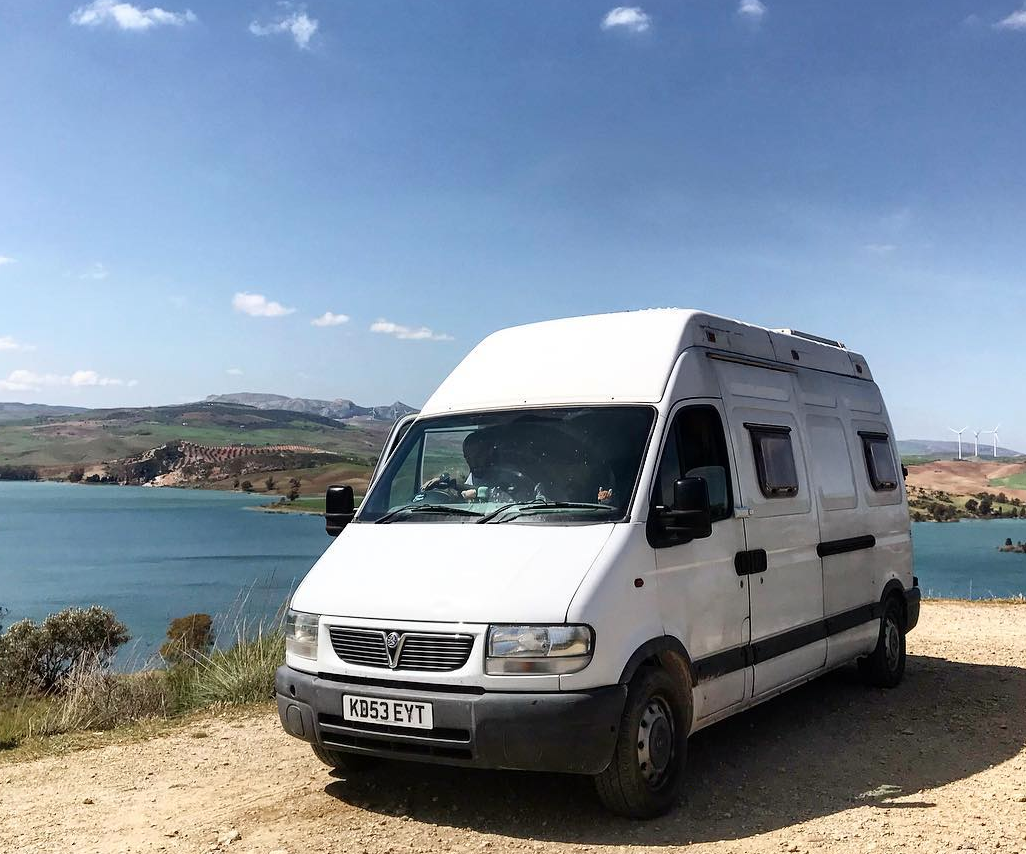
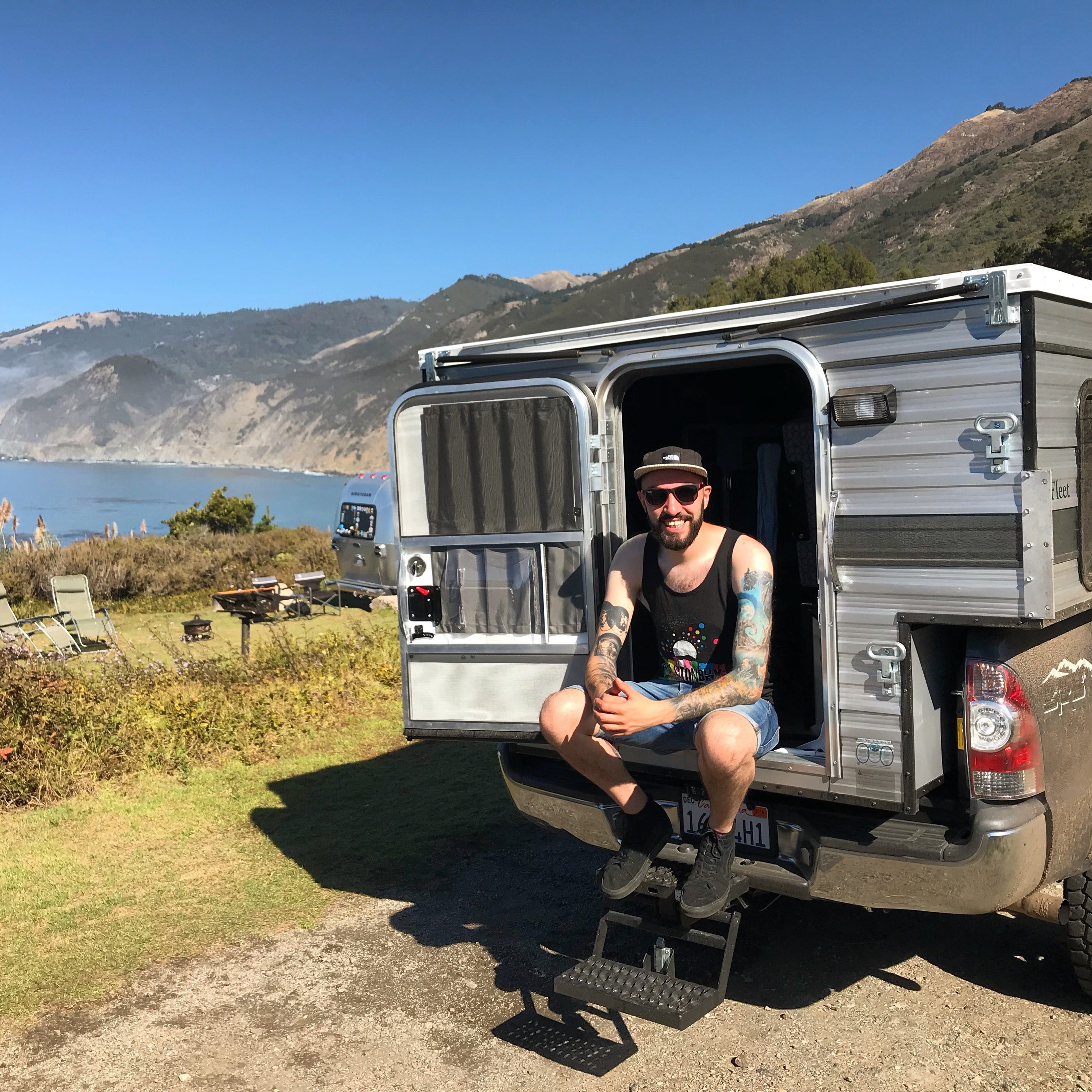
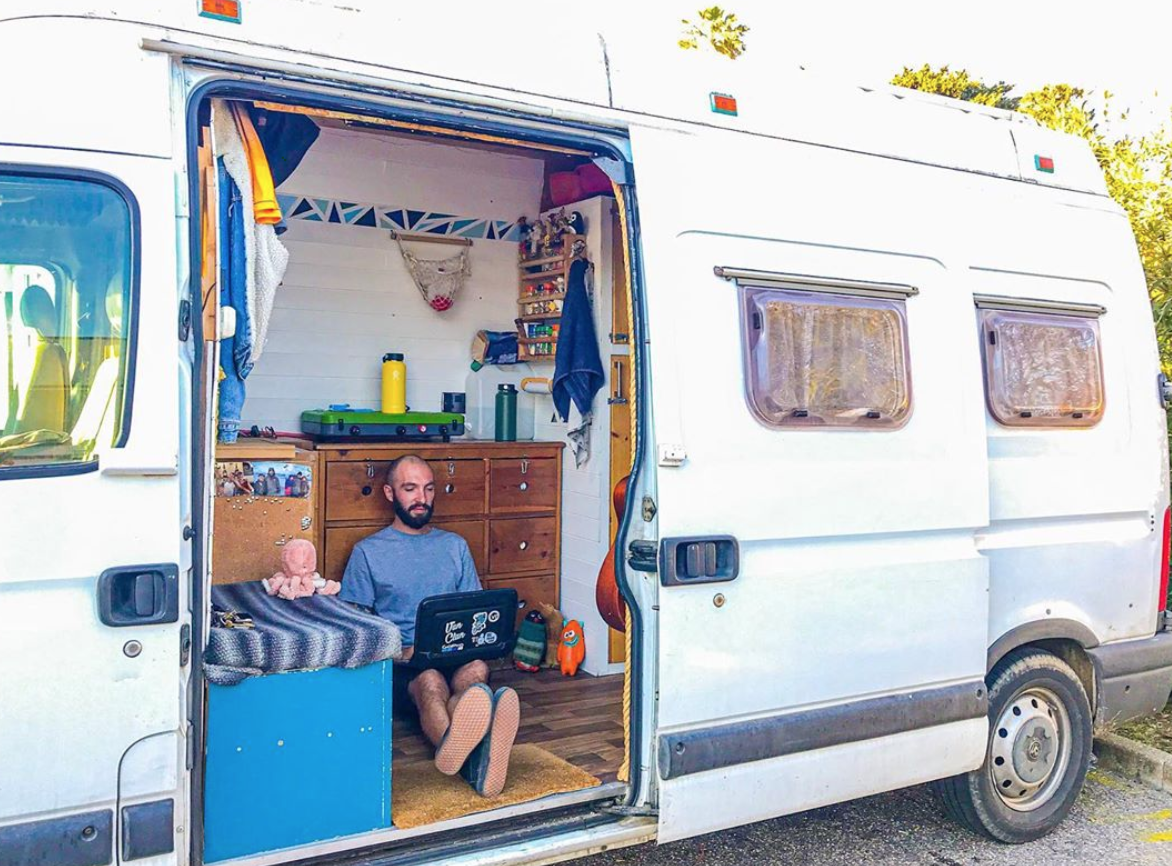
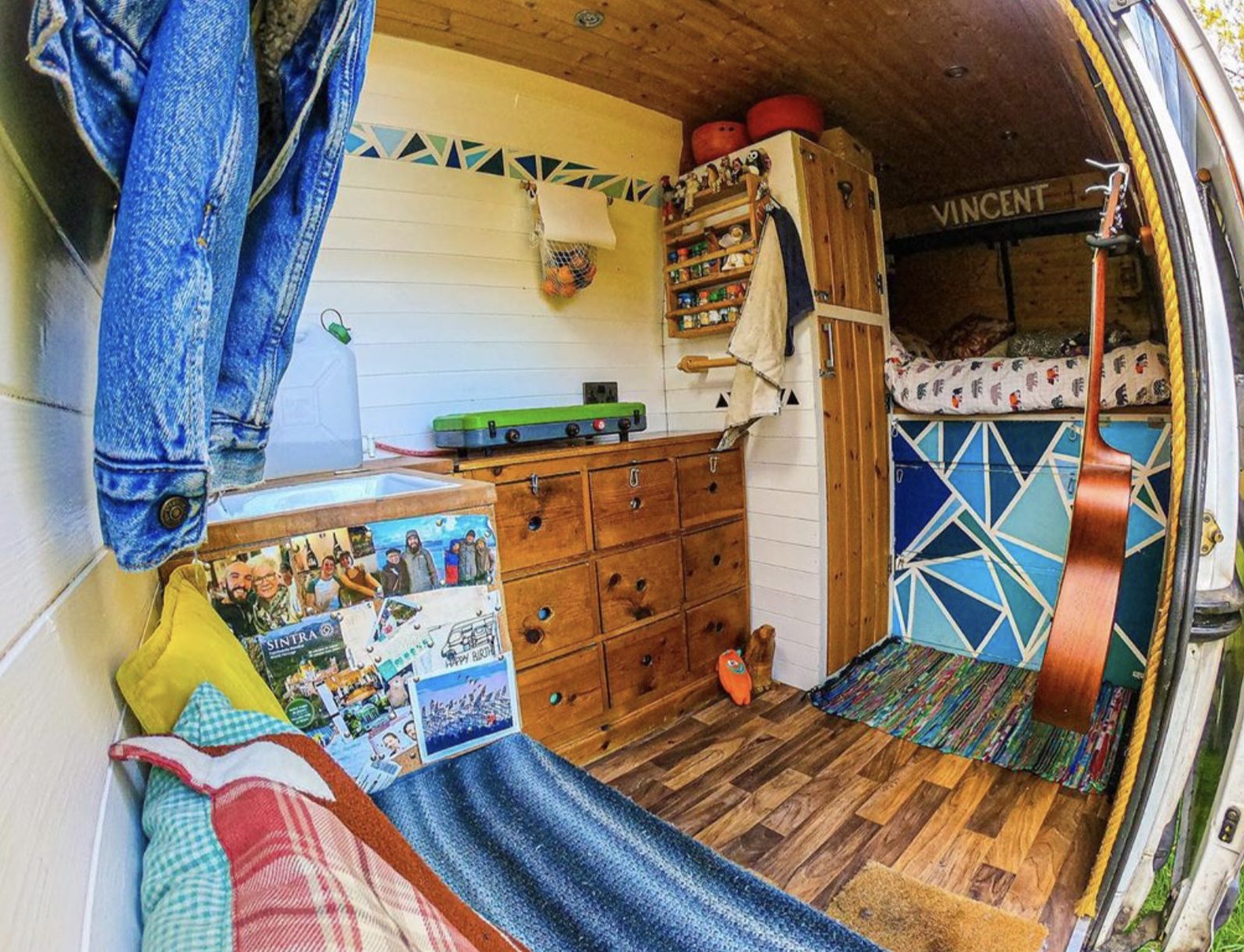


COMMENTS
Please note that all comments will be checked by our team before being approved.